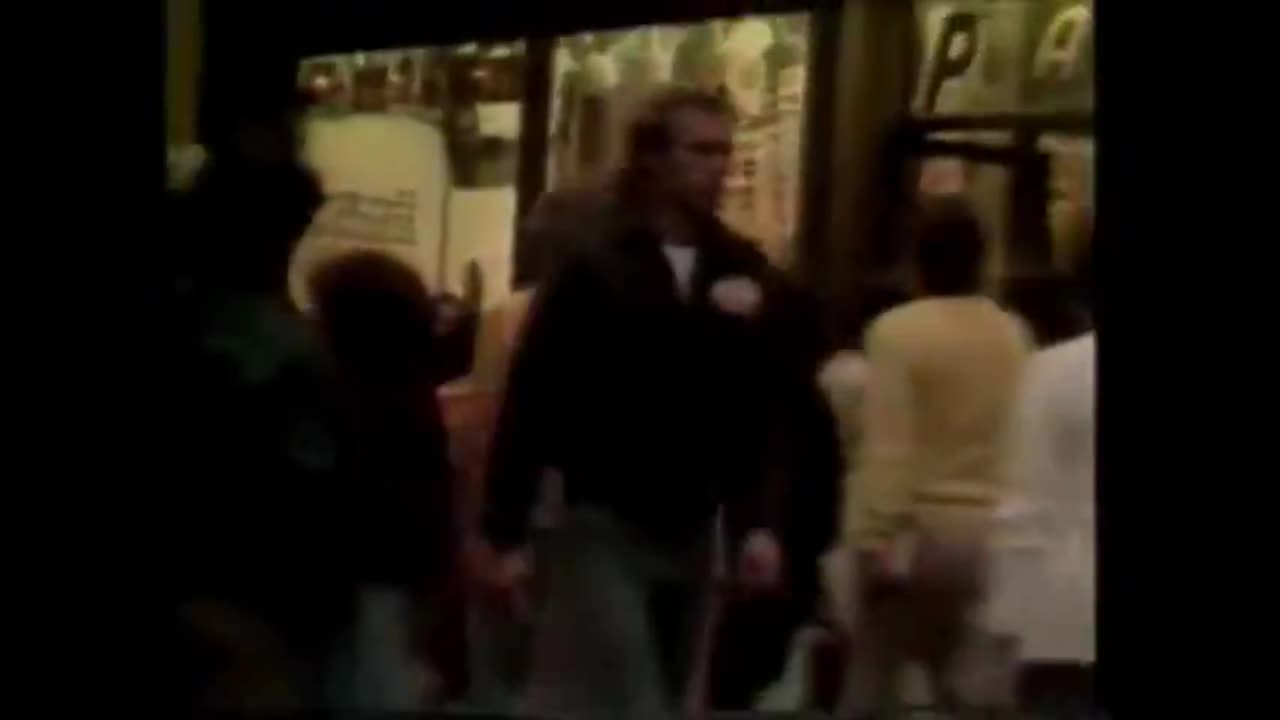Premium Only Content

REAGAN & BUSH: BOYS FOR SALE ( 1981 Documentary)
With a story about "key officials of the Reagan and Bush administration" involved in a "callboy ring," the Washington Times in late June seemed poised to give this town the one thing it adores -- a summer scandal. But as of last week, journalists have been left debating whether the Times published a blockbuster or a "blockbluster," as one critic put it. The story is intriguing -- involving male prostitution and a lobbyist who used parties to promote his business connections and business connections to promote his parties. But is it a government scandal or just a sordid slice of life in a city that happens to be Washington, D.C.? Washington Times Editor in Chief Arnaud de Borchgrave, when asked whether the story is as big as his paper has advertised, says that the scandal is evolving. "This story is going to be much like Watergate," de Borchgrave said. "It will go on for months; each time you shake the tree, something else falls out of it." Numerous Washingtonians in recent weeks have said that the Times's exclusives, many of which have not been reprinted in other papers, are worthy of more effort from the thousands of reporters who work in Washington. "We can get a little too stuffy," said Stephen Hess, a senior fellow at the Brookings Institution. "In some way, that's a classic story. It's just that the press has become so professional that we have a class structure built in now and we look down our noses at yellow journalism -- the kind that Hearst and Pulitzer made their reputations with." Other journalists in Washington are not so certain. "Where's the beef? I can't figure out what's going on here," said James Glassman, editor and publisher of Roll Call, a twice-weekly newspaper that covers Congress. "I don't think there's much substance to it, but it's a good old-fashioned, sell-newspapers kind of journalism." The story began, many journalists say now, on Feb. 28 with what appeared to be a routine raid by D.C. police and the U.S. Secret Service on a house in the 6000 block of 34th Place NW. Sources have told reporters that the primary purpose for the raid by D.C. police was to investigate a male prostitution call service. The Secret Service, which investigates most credit card fraud, was there to determine whether operators of the prostitution service were using customers' card numbers illegally. After the raid, the house remained cluttered with stacks of documents, furniture and an odd variety of carved, stuffed and miniature elephants -- believed to be the collection of one of the tenants. When U.S. marshals came to evict the tenants' belongings, the owner and her lawyer, Marc Moskowitz, promised some reporters a chance to rummage through the debris. In many cases, Moskowitz agreed to give reporters access to the house if they would not mention the owner's name. Three months after the raid, after U.S. marshals swept furniture and belongings onto the sidewalk, Moskowitz gave reporters the walk-through. When the journalists saw documents -- pages from ledgers, a diary, pornographic pictures or toys -- he said they could take them. Reporters hauled paper away in boxes, he said. "It was like a garage sale. It was like a carnival atmosphere," Moskowitz said. Among news organizations that had reporters carting away ledgers and documents from the house, according to Moskowitz, were The Washington Post, Regardie's, Channel 9 (WUSA) and Channel 4 (WRC). Moskowitz said he did not see a reporter from the Washington Times, but de Borchgrave said, "We had our people there, and we all divided the goodies." The piecemeal distribution of these documents kept many journalists wondering who had what. Rumors proliferated in Washington that the documents revealed names of famous clients of the prostitution service that allegedly was operating out of the house. For example, Moskowitz and a number of reporters who covered this story said they had heard that Regardie's reporter Keith Girard carried out a diary full of "some big names," as Moskowitz put it. "It's more like an engagement book," said Girard. "It's interesting but there's nothing in it, in and of itself, that is particularly revealing about politicians or anything." Girard and other reporters who looked through the data said that they found information implicating doctors or lawyers who could afford the service's steep fees, which started at $150 and rapidly escalated. "We checked into it; we sent reporters out when they raided the house in February and again when they had the eviction," said Jack Nelson, Washington bureau chief of the Los Angeles Times.
-
 LIVE
LIVE
LumpyPotatoX2
7 hours agoKilling Floor 3 + SoulFrame: Co-op Showcase - #RumbleGaming
1,369 watching -
 2:10:50
2:10:50
vivafrei
8 hours agoEp. 274: Canada's War on Christianity! Is Candace Owens Cooked? SCOTUS, RFK Jr. AND MORE!
72.7K158 -
 38:09
38:09
The Mel K Show
5 hours agoMel K & Tim James | Are Hidden Dangers Lurking in Your Mouth? | 7-27-25
28.6K4 -
 LIVE
LIVE
sophiesnazz
2 hours agoTIME TO WIND PEOPLE UP !socials
72 watching -
 LIVE
LIVE
GamerGril
2 hours agoDoom Gal Bingo The Finale | Special Boss Bingo
78 watching -
 2:22:46
2:22:46
The Connect: With Johnny Mitchell
1 day ago $14.90 earnedOne Man's Mission To Stop Human Trafficking: How A Billionaire Mercenary Saved Hundreds Of Children
52.8K37 -
 LIVE
LIVE
FoeDubb
3 hours ago🏰KINGDOM MENU:🌳SESHYS & PUBG PEW PEWS ON DECK DILLY DILLY!!!
43 watching -
 28:43
28:43
Liberty Hangout
4 days agoAnti-Trumpers Don't Know What They're Protesting
55.3K239 -
 LIVE
LIVE
PudgeTV
1 day ago🟠 Gaming on Rumble | Soulframe Early Access Gaming Showcase
131 watching -
 5:39:23
5:39:23
ttvglamourx
6 hours ago $1.93 earnedSearching To Destroy !DISCORD
18.7K4